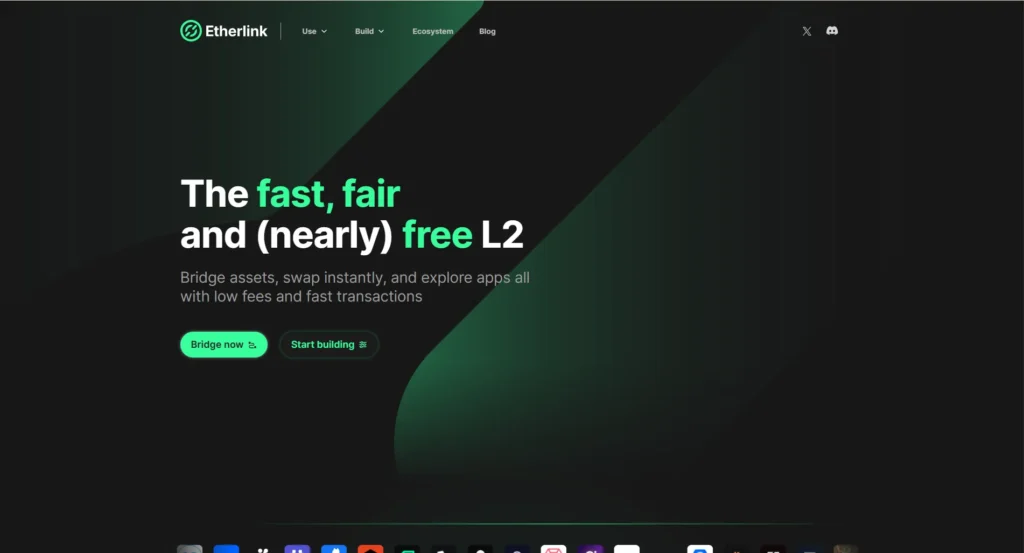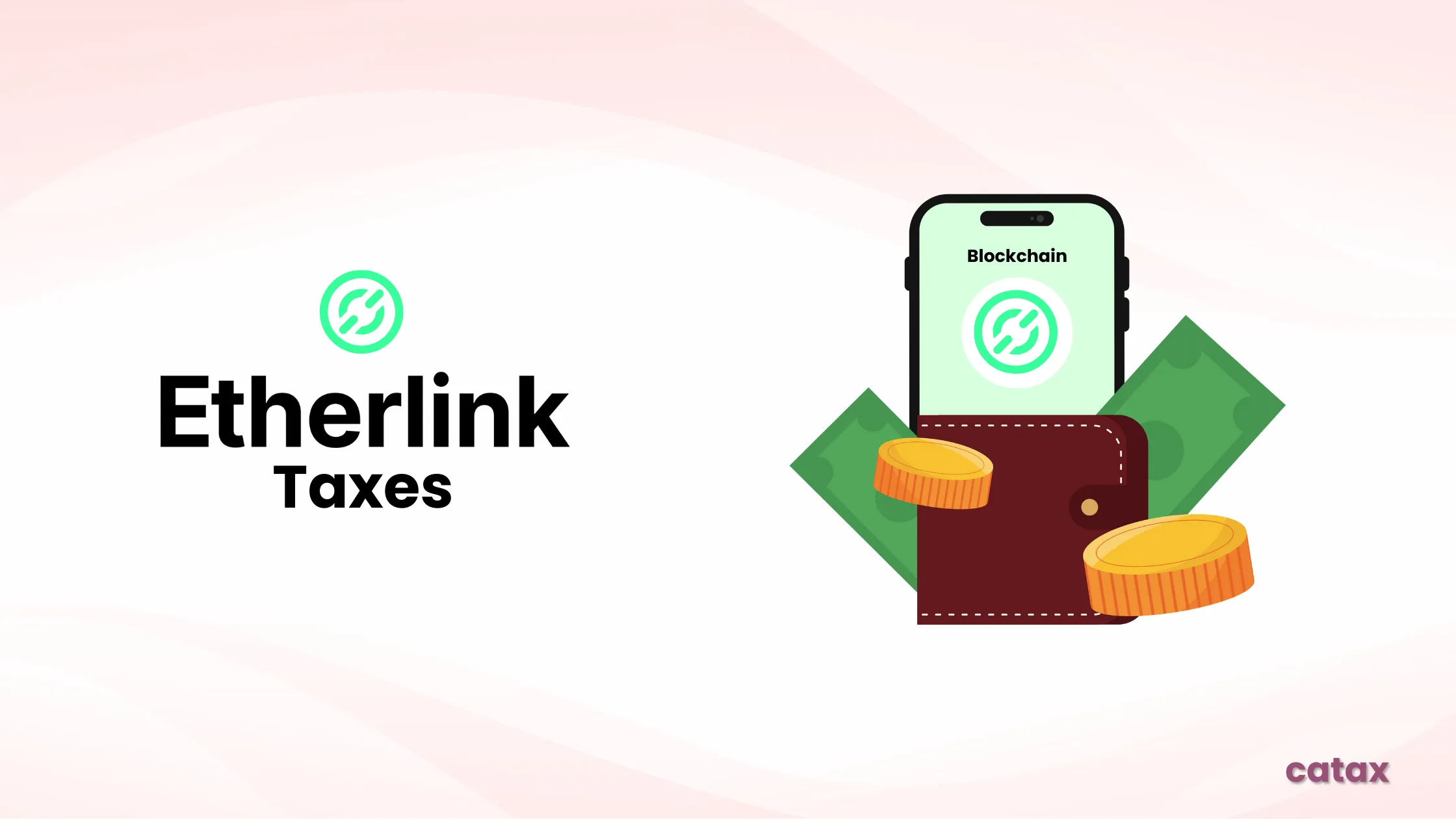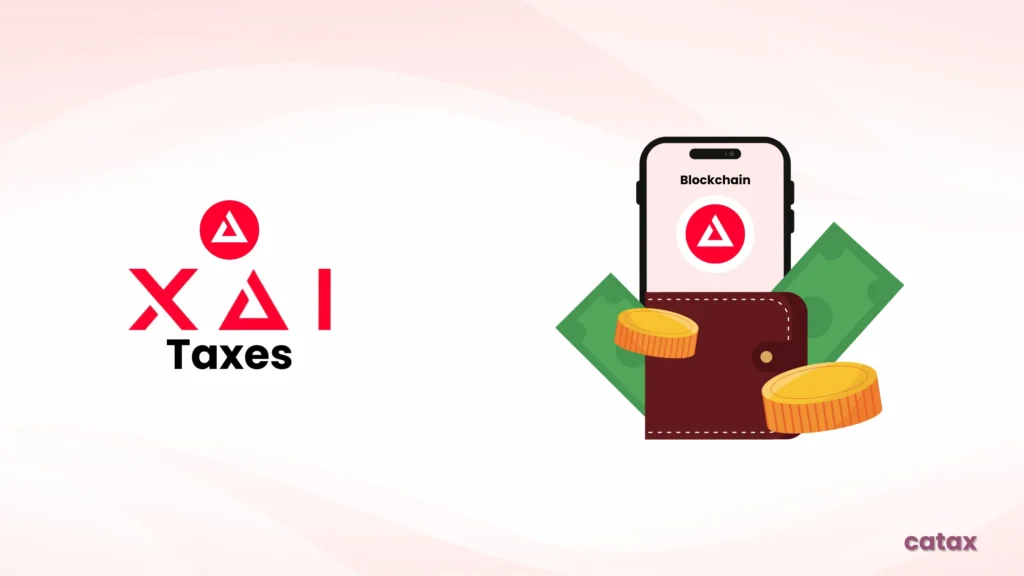Cryptocurrency tax rules vary by country, and Etherlink taxes transactions may be taxed according to local regulations. Whether you buy, sell, trade, or stake L2, understanding how tax authorities classify these actions helps you stay compliant and avoid penalties.
This guide simplifies Etherlink taxes so you can confidently manage your tax obligations and ensure smooth reporting.

How to Connect Your Etherlink Wallet to Catax
To track your Etherlink (L2) transactions and calculate taxes effortlessly, follow these steps to connect your wallet to Catax:
- Open your Etherlink wallet or access a block explorer (such as MetaMask, Trust Wallet, Ledger, or any supported wallet).
- Copy your public wallet address from your Etherlink wallet.
On Catax:
- Log in to Catax and select your country.
- Select Chain, then search for Etherlink Wallet.
- Paste your public address and click Connect.
Once connected, Catax will automatically track your L2 transactions and simplify your crypto tax reporting.
Calculate My Taxes ➤Are Etherlink Transactions Taxable?
Yes, in most countries, Etherlink (L2) transactions are taxable. Governments may classify L2 tokens as property, capital assets, or income depending on their usage.
When Do You Have to Pay Taxes on Etherlink?
You may need to pay taxes when you:
- Sell L2 for a profit – If you sell Etherlink tokens for more than you paid, the profit is usually subject to capital gains tax.
- Trade L2 for another cryptocurrency – Swapping L2 for ETH, BTC, or any other token may trigger a taxable event.
- Use L2 to buy goods or services – Spending L2 on purchases may lead to capital gains tax if the token appreciated in value.
- Earn L2 from staking – Staking rewards in L2 are often considered income and taxed when received.
- Get paid in L2 – Receiving Etherlink tokens as compensation for services or work is generally taxed as income based on the token’s market value at the time.
Since tax rules vary, always consult your country’s crypto tax laws for specific treatment of L2 activities.
Can You Deduct Trading Fees and Other Costs?
Many Etherlink users ask whether they can deduct associated expenses. This depends on your country’s tax laws.
Some countries allow deductions for:
- Trading fees during buying or selling transactions.
- Network/transaction fees when sending L2 between wallets.
Others only allow deduction of:
- The cost basis of acquiring L2 tokens, without additional deductions.
Check your jurisdiction’s rules to understand eligible deductions.
How Is Etherlink Taxed Based on Holding Period?
Your tax rate on Etherlink profits may vary depending on how long you held the tokens:
- Short-term (less than a year) – Typically taxed at standard income tax rates.
- Long-term (more than a year) – Some countries offer reduced tax rates for long-term holdings.
- Flat-rate systems – Certain jurisdictions apply a fixed tax rate, regardless of the holding period.
Understanding these rules can help you optimize your tax strategy and lower potential liabilities.
You can also check out our Country-Specific Guide for Crypto in Your country. This guide provides insights on regulations, tax implications, and compliance measures breifly explained for each country.
How Is Staking Income Taxed?
Staking Etherlink (L2) tokens can earn you passive income, but the tax implications vary by country. Some governments impose taxes as soon as rewards are received, while others only tax staking rewards when you sell or exchange them.
How Countries Tax Etherlink Staking Rewards
- Taxed as income – In some jurisdictions, staking rewards are treated like regular income. Taxes are due when the L2 rewards hit your wallet, and they are taxed at your standard income tax rate.
- Taxed as capital gains – In other countries, staking rewards are taxed only when you sell or trade them. In this case, only the gains from selling are subject to tax.
If you’re staking Etherlink, it’s crucial to understand how and when taxes apply in your country to stay prepared and compliant. Some tax authorities may impose taxes on staking rewards even if you haven’t sold them.
Can You Claim Etherlink Losses for Tax Benefits?
Not every trade goes up. If you sell Etherlink at a loss, you might be able to use that loss to reduce your overall tax burden—depending on your country’s laws. How Different Countries Handle Crypto Losses:
- Loss offsets – Some countries allow you to deduct losses from your Etherlink trades to offset taxable gains, reducing the total amount of tax owed.
- Loss carryforward – If you don’t have gains this year, some governments allow you to carry losses forward and use them against future profits.
- Limited deductions – In some regions, you may not be allowed to claim crypto losses at all.
Accurate transaction records are essential for reporting losses properly and maximizing any tax advantages you may be entitled to.
How to Stay Compliant with Etherlink Tax Rules
Crypto tax regulations are constantly evolving. To avoid penalties and ensure accurate reporting:
- Understand how your country taxes L2 transactions – Are Etherlink gains classified as capital gains, income, or business revenue?
- Check which deductions apply – Are you allowed to deduct transaction fees, staking rewards, or wallet expenses?
- Keep detailed records of all Etherlink activity – This includes every buy, sell, trade, staking reward, and payment involving L2 tokens.
- Use a crypto tax platform like Catax – Catax simplifies tax reporting by automatically tracking your Etherlink transactions and calculating tax liabilities.
- Consult a tax professional – If you’re uncertain about your obligations, a tax advisor can help you comply with local crypto tax laws.
Stay proactive and organized to manage your Etherlink taxes with confidence and avoid surprises during tax season.
Book a Free Consultation Now →

